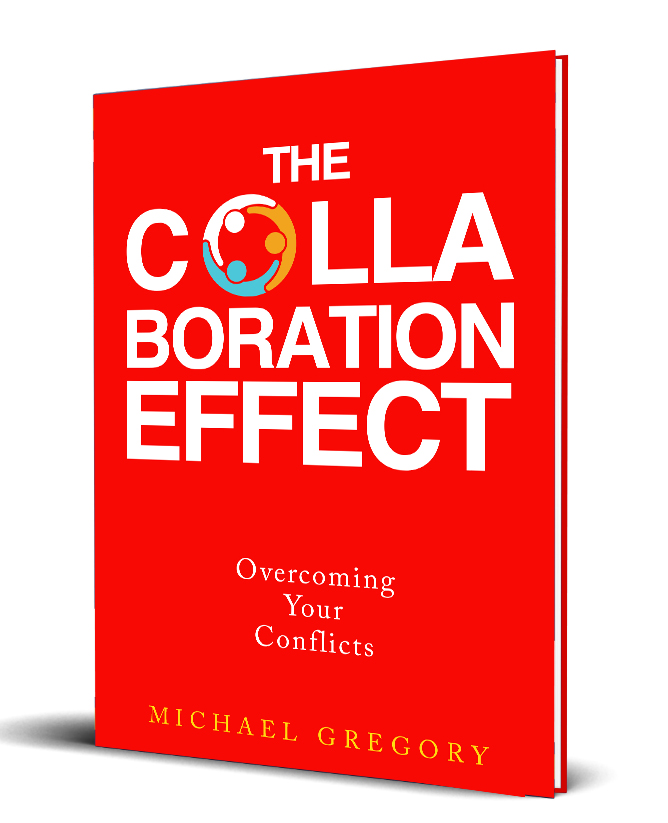
In a negotiation it is especially important to be authentic. Operate with compassion. That is be calm, confident, and competent. Be genuine. Be true to yourself first. Come with focus and an attitude to help. Having a firm understanding of self is important. With this as focus take listening to another level with “linguistic mirroring”. Linguistic mirroring is paying attention to the words, the tone, and the facial and body language of the other party and reflecting this back to the other party. This helps to build a connecting relationship. With a connecting relationship the other party is more apt to listen to you. The commentary below expands on this concept.
Being authentic
What does it mean to be authentic? Start by exploring your own values. Think about your values ahead of time. For example, are some of your values: accepting, confidence, commitment, communication, courage, giving back, hardworking, honesty, humility, integrity, kindness, making a difference, nonjudgmental, being respectful, being responsible, service, transparency, and/or wisdom? Knowing your own values and reflecting on these ahead of time can help put you in the proper state of mind. Authentic individuals often focus on the big three:
- They are real
- They are transparent
- They care.
You need to live in the moment. Be true to yourself and your core values. Have confidence in what you do and what you say. You do not need to say everything you think. In fact, it is not a good idea to say everything you think. Ask yourself, will it help, is it true, and is it necessary? If not make a point not shar the information. Be calm. Be collected. Be there to understand. Be there to help console is that is needed. Think before you speak. Be straightforward. Do not be honest to a fault. Share pertinent information that will help the situation. Information may be factual, or it may be something to help de-escalate and build connecting relationships. Operate with integrity. Understand what you are feeling. Then, instead of focusing inward, focus outward. Put others first. Be humble. Know what it is you want to do. Be self-aware. Know your emotional intelligence. Calm the fire. Be mindful of what you are thinking and why you are thinking what you are thinking. Act with good intentions. Others will admire you for doing so.
Treat others with kindness and respect. Being respectful means to treat others with high regard. Everyone defines respect, but in general consider politeness, and social behavior that reinforces your concern for the individual.
Be caring about others. By caring this helps you in your cognitive abilities too.
You are less focused on self. Listen actively by paraphrasing, summarizing, asking open ended questions, and empathizing with the other party. By keeping an open mind and being fair minded this allows you to look at the situation more broadly. Now that you are properly focused consider helping the other party with linguistic mirroring during the process.
Linguistic mirroring
In a recent article offered by the Harvard Business Review Tip of the Day on December 7, 2021 entitled “To Win Someone Over Mirror Their Language”, the tip was taken from “Want to Win Someone Over? Talk Like They Do.,” by Maxim Sytch and Yong H. Kim. In the tip it is suggested that you
“speak in the same manner as your counterpart. When you mirror the other person’s preferred communication style, they’re likely to find you more persuasive.”
This is not to manipulate the situation. Rather it is important to have an attitude to help the other party to be more comfortable with the situation. This could involve several communication styles. Some are more linear thinkers. Others can relate to a good on point story at the start of a session. Look for opportunities to relate to the other party given their interests and sense of humor outside of the topic. Work on trying to relate to the other party with things that are important to them.
Be honest and be authentic. If you are not, you will blow it. Be true to yourself. Do not try to manipulate.
As soon as you do and you are discovered, your credibility will be shot. That is the reason at the start of this commentary the emphasis is on being authentic. If you apply linguistic mirroring and you are not authentic you will be discovered and perceived as a fraud. This will blow any chance for a positive outcome. So, what the implications for a negotiation, mediation, or facilitation if you are authentic and you can apply linguistic mirroring?
Impact on negotiations, mediations, and facilitations
Whether you are in a negotiation, mediation, or facilitation, the implications above are right on point. You only have one reputation. You cannot afford to jeopardize your reputation. Do not try to be someone you are not. Be authentic. Explore your own values. Center yourself before you enter a negotiation, mediation, or facilitation. Know yourself and be true to your values. Then and only then, consider linguistic listening as part of your toolbox for connecting relationships and listening actively. Linguistic listening can be an especially important tool. By mirroring the other person’s communication style, you may be able to move much quicker towards closure by bridging areas that otherwise may have taken much longer to cross.
About the author
Mike is a mediator, a professional speaker, and an author. You may contact Mike directly at mg@mikegreg.com and at (651) 633-5311. Mike has written 12 books including his latest book, The Collaboration Effect: Overcoming Your Conflicts, and The Servant Manager, Business Valuations and the IRS, and Peaceful Resolutions that you may find helpful. [Michael Gregory, ASA, CVA, NSA, MBA, Qualified Mediator with the Minnesota Supreme Court]
About the author
Mike Gregory is a professional speaker, an author, and a mediator. You may contact Mike directly at mg@mikegreg.com and at (651) 633-5311. Mike has written 12 books (and co-authored two others) including his latest book, The Collaboration Effect: Overcoming Your Conflicts, and The Servant Manager, Business Valuations and the IRS, and Peaceful Resolutions that you may find helpful. [Michael Gregory, ASA, CVA, MBA, Qualified Mediator with the Minnesota Supreme Court]

